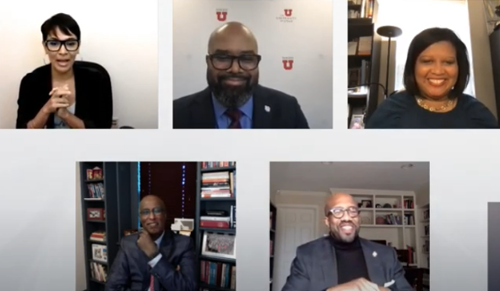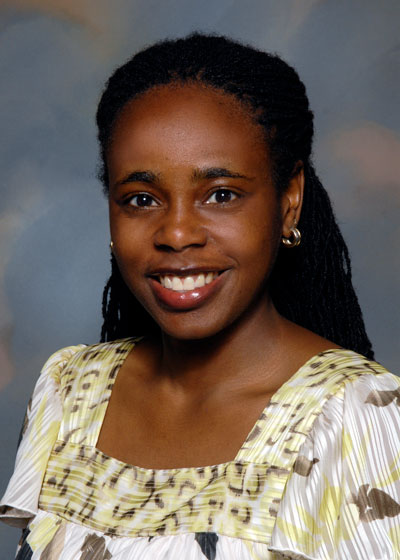Voices of U of U Health
Sounding the Trumpet for Racial Healing
Last week, I attended my first virtual Friday Forum on Anti-Racism in Higher Education, “A Call for Racial Healing,” moderated by Marlon Lynch, University of Utah’s inaugural Chief Safety Officer. More than 200 individuals from across the campus community attended the opening panel discussion and/or one of the nine break-out sessions that followed.
As a recently appointed associate chair for equity, diversity, and inclusion in the Department of Family and Preventive Medicine, I am learning as much as I can to adequately serve my colleagues, trainees, and patients while augmenting the efforts the university is taking to form a more equitable and welcoming environment for all.
Looking Forward Is Our Best Hope
Four national thought leaders—Said Ibrahim, MD, PhD, MBA; Kaiwipunikauikawēkiu Punihei Lipe, PhD; Tia McNair, EdD; and Michael J. Sorrell, EdD—led the opening panel discussion, sharing their perspectives on how we can begin the process of racial healing on our campus.
It was a fascinating, thought-provoking, and emotional discussion. I gained new insights to share with others as we work together to make necessary changes.

Said Ibrahim, Kaiwipunikauikawēkiu Punihei Lipe, Tia McNair, and Michael J. Sorrell in 2022.
Michael Sorrell, longtime president of Paul Quinn College, said, “We have never been unified as a country the way we want to unify it today. We have no road map to refer to in our quest to heal racism; we are charting a new road in an attempt to leave our children a better and more racially just world.”
I was struck by Sorrell’s candor and the notion that there is no point in looking back. We need to focus on the present to address the current pain felt by many with the racial tensions in our nation. Then, we can start to look forward to making this a better country and a better world for all of us.
Racial Healing On Our Campus
The fact that our campus community is having serious discussions about racism and ways to eradicate it among our faculty, staff, and trainees, indicates progressive leadership and a determination to take steps toward change. As Equity, Diversity, and Inclusion (EDI) establishes its footing as a new division they are focused on harnessing the numerous learning opportunities and activities to involve all of our community members.
Creating a Welcoming Environment
Whether we are recruiting and hiring new faculty and staff or attracting prospective students to our campus, we can benefit from evaluating and reflecting on our outreach and invitation to be a part of our community.
People who come to our campus and health care facilities need to feel comfortable and welcome. We need to take deliberate action to begin changing our daily practices of engagement. Typically, people want to see and interact with others familiar with their culture or lifestyles.
Also, our physical environment should be inclusive. Everything from pictures and art on the walls to educational and informational materials should reflect a diverse, multi-cultural setting, highlighting the important contributions made by people of all walks of life.
Let All Voices Be Heard
One of the most crucial messages expressed during the Friday Forum panel discussion is the importance of creating a space in which people can tell their own stories. We need to encourage everyone in our U community to step forward to talk about their experiences. If all voices are heard, we will have a better understanding and ability to openly communicate and create strong relationships.
As a family medicine physician, the stories and messages I heard during the forum will help me communicate better with my patients, provide better care, and form better relationships.
From an academic perspective, I gained insight into creating a learning environment that is open and accepting—one that invites all to be engaged and participate freely. It also gave me guidance on how to look at our curriculum differently. In my role as associate chair for EDI, I will work to make sure EDI is embedded into the curricula for all our trainees. I will also work to create a longitudinal training series to continually address EDI issues, including implicit bias and microaggressions. Overall, I am striving to create an inclusive culture that expands the possibilities of health and improves our environment for all.
All U faculty, staff, and students are encouraged to participate in the February 26 Friday Forum on Racism in Higher Education and submit breakout session proposals.
